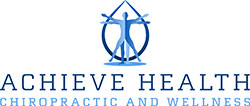Frequently Asked Chiropractic Questions
See our Acupuncture faq Here
How do I find a chiropractor?
What conditions do chiropractors treat?
Is Chiropractic manipulation a safe procedure?
Is every patient’s treatment the same?
Can Chiropractic treatment provide a preventative function?
Why is there a popping sound when a joint is adjusted?
Is Chiropractic treatment appropriate for children?
How do I find a chiropractor?
Chiropractors are "primary contact" health care providers, which means you don’t have to be referred to them by a physician or anyone else. You can select your own chiropractor. As with any other professional, referrals from friends and acquaintances are an excellent way to find a good chiropractor.
What conditions do chiropractors treat?
Chiropractors are experts trained in the neuromusculoskeletal system. They diagnose and treat disorders of the spine and other body joints by adjusting the spinal column or through other corrective manipulation. Chiropractors provide conservative management of neuromusculoskeletal disorders including, but not limited to, back, neck, arms, legs, knees, shoulders, hips, and head pain (over 80 percent of conditions treated). They also advise patients on corrective exercises, lifestyle and nutrition.
Is Chiropractic manipulation a safe procedure?
Chiropractic adjustment or manipulation is a drug-free, non-invasive approach to common musculoskeletal conditions such as headache, neck and back pain. As such, it is a low risk therapy. Complications arising from adjustment are rare.
Is every patient’s treatment the same?
The treatment a patient receives is related to the specific condition diagnosed by the Chiropractor, and will vary from person to person depending on each person’s unique situation. Like M.D.’s, Chiropractors follow generally accepted protocols and guidelines.
Back to questions ⇑
Can Chiropractic treatment provide a preventative function?
Clinical experience suggests that individuals with chronic conditions such as degenerative joint disease (osteoarthritis) or recurrent neck pain, back pain or headaches may experience less frequent and less severe symptoms when under regular Chiropractic care. This also applies to individuals in highly stressful situations and those who experience repetitive physical and postural strain from their daily activities. Whether ongoing Chiropractic treatment can prevent back pain from occurring in the first place, or prevent a previous condition from re-occurring, requires further study.
Back to questions ⇑
Why is there a popping sound when a joint is adjusted?
Adjustment of a joint may result in release of a gas bubble between the joints that makes a popping sound – it’s exactly the same as when you "crack" your knuckles. It is not painful. It is caused by the change of pressure within the joint resulting in gas bubbles being released.
Back to questions ⇑
Is Chiropractic treatment appropriate for children?
Yes, children can benefit from Chiropractic care. Children are very physically active and experience many types of falls and blows from activities of daily living as well as from participating in sports. Injuries such as these may cause many symptoms including back and neck pain, stiffness, soreness or discomfort. Chiropractic care is always adapted to the individual patient. It is a highly skilled treatment, and in the case of children, very gentle.
Back to questions ⇑
Frequently Asked Acupuncture Questions
How big are the needles and how deep are they inserted?
Will it hurt me?
How do I find a good acupuncturist and which license should they have?
How does it work?
Is it OK for me to eat before or after a session? What about exercise?
How many sessions do I need in order to start feeling the benefits?
Do I have to believe in acupuncture?
Can children receive Acupuncture?
Are There Any Side Effects?
How big are the needles and how deep are they inserted?
The stainless steel needles, normally about as thin as a human hair, are pre sterilized and disposable. Unlike the hollow needles used for giving injections, acupuncture needles are solid. The acupuncturist will insert them to a depth of anywhere from a quarter of an inch to 3 inches, depending on the amount of subcutaneous fat that the needles need to penetrate.
Will it hurt me?
Acupuncture should be painless, although some people experience a slight sharp sensation depending on how sensitive they are and where the needles are inserted. Once the needle is in place, it’s normal to initially feel a tingling sensation, numbness, mild pressure or warmth. If these sensations became too strong or are uncomfortable, alert your doctor and he will adjust the needles.
How do I find a good acupuncturist and which license should they have?
Look for one who is a licensed acupuncturist (L.Ac.) or a doctor of Oriental medicine (O.M.D. or D.O.M.). Although word-of-mouth referrals often produce the best results, the National Certification Commission for Acupuncture and Oriental Medicine (NCCAOM) has standards that have been adopted by most states, and you can search the group’s database (NCCAOM.org) by state to see who is licensed. Roughly 40 states have training standards for acupuncture certification, and some states have additional requirements for obtaining a license to practice.
Back to questions ⇑
How does it work?
TCM teaches that the quality of energy or life force in the body — what acupuncturists call qi (pronounced “chee”) — determines our health. This qi circulates along energy pathways called meridians, many of which are linked to specific organs. Disease results when the qi becomes blocked and can’t circulate freely. In order to re balance the energy flow and restore health, acupuncturists insert needles into key points on the body. (They work with approximately 360 acupoints.)
Back to questions ⇑
Is it OK for me to eat before or after a session? What about exercise?
It’s good to eat a little bit before a session because low blood sugar could increase sensitivity to the treatment and cause you to feel faint. Don’t, however, eat a heavy meal. For exercise, the reverse holds true. Prior to your session you can exercise as strenuously as you want. However, most acupuncturists advise only mild exercise within several hours after treatment. Eating too much or vigorous exertion can disrupt the corrective flow of energy that follows an acupuncture session. “You’re trying to shift energy into a new pattern.”
Back to questions ⇑
How many sessions do I need in order to start feeling the benefits?
That depends on the severity of the condition. For some people, the effect of acupuncture can be quite dramatic — they may feel the benefits after one session. For others, the response may be more gradual. In general, you should notice at least small changes in your condition within four to six treatments.
Back to questions ⇑
Do I have to believe in acupuncture?
Quite simply, no! Of course, a positive attitude and state of mind will help any healing process but it is certainly not necessary that you believe in acupuncture for the treatment to be successful. Acupuncture is also used successfully on animals such as horses and dogs.
Back to questions ⇑
Can children receive Acupuncture?
Yes. Generally speaking children do well with acupuncture because their energy is very responsive. As a result their course of treatment may be shorter and fewer needles required. On the other hand, the younger the child the more training the practitioner needs.
Back to questions ⇑
Are There Any Side Effects?
It is quite common with the first couple of treatments to have a sensation of deep relaxation or even mild disorientation immediately following the treatment. These pass within a short time, and never require anything more than a bit of rest to overcome.
Occasionally the original symptoms being treated worsen for a few days, or other general changes in appetite, sleep, bowel or urination patterns, or emotional state may be triggered. These should not cause concern, as they are simply indications that healing is occurring.
Back to questions ⇑
Top of page ⇑


